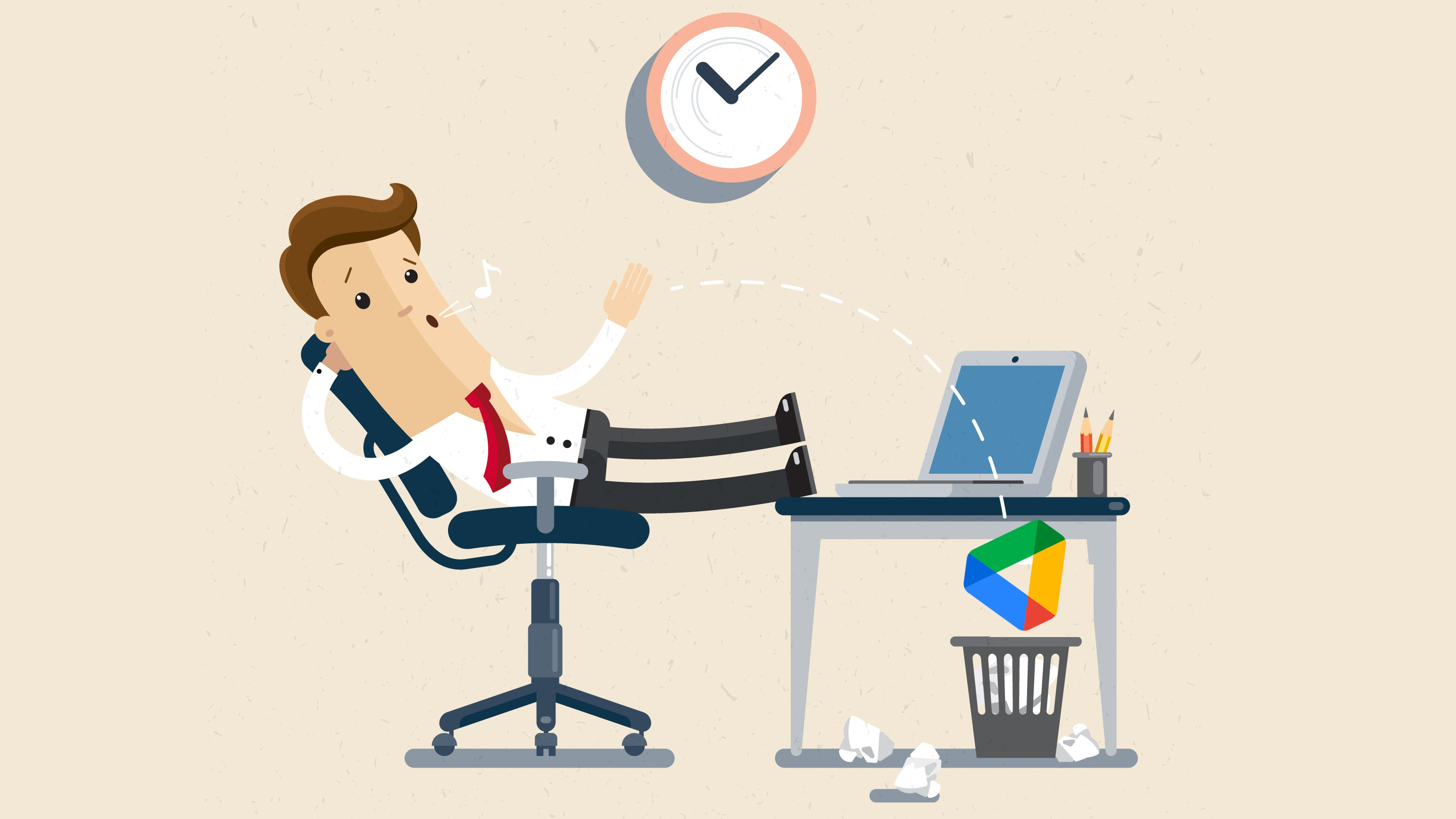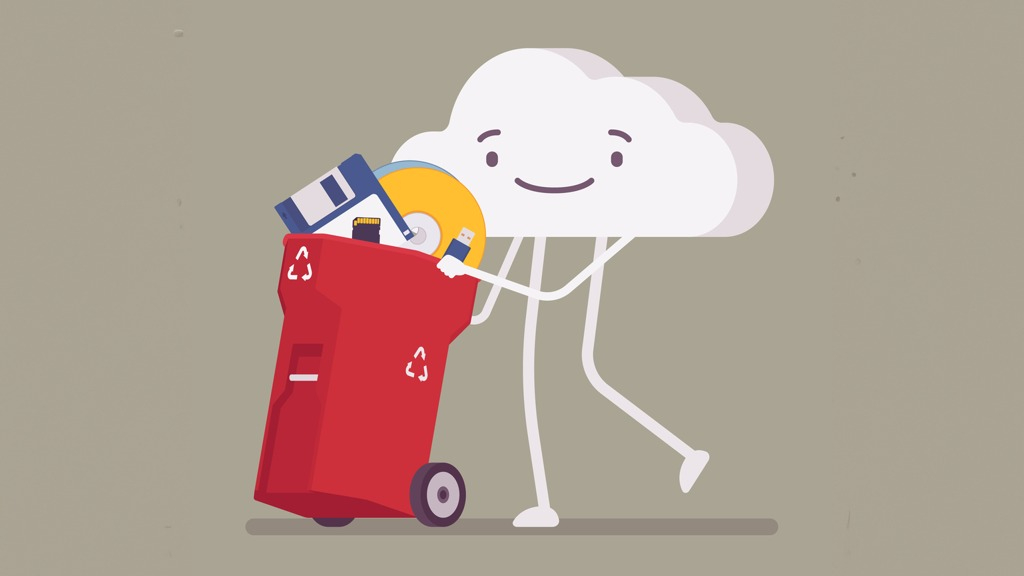Ditching Google Drive for Microsoft OneDrive was one of the best choices I’ve ever made
Google Drive is dead to me – OneDrive is all I need

Like most parents, the amount of digital photos I took exploded when my daughter was born. By the time her umbilical cord was cut I’d already had emails from Google – not to congratulate me (thanks Google), but to let me know my Google Drive was filling up fast.
As my daughter turned from a grey and slimy newborn into an adorable baby, and started actually doing interesting and cute things, rather than just being a screaming potato, my Google Drive capacity came under even greater strain thanks to the deluge of photos I was taking. Google’s emails became more alarming as I reached my storage quota.
As a filthy Android user, Google Photos and Google Drive were my default services for cloud storage, and I hadn’t felt the need to look elsewhere. As an owner of an original Google Pixel smartphone, it actually made sense to stick with Google Photos, as the company was once offering unlimited storage for your snaps. Sadly, not only had Google since stopped offering that incentive to get people to buy its smartphones, but by the time my daughter was born, I’d switched to a Samsung smartphone.
Having the photos I take on my smartphone get automatically backed up in full quality was extremely important for me – these were photos I would be devastated to lose if my phone got lost or broken. So, with the threat that my photos would no longer get backed up, I needed to act fast.
The most obvious step was to increase my Google Drive storage amount. However, I was already paying $2.99 per month for 200GB. The only larger option was for 2TB for $9.99 – a huge increase in the monthly price – and even with my trigger-happy snapping, I didn’t think I would need that much. As a new parent, I needed to watch my outgoings. So, I decided to shop about – and it didn’t end well for Google.

Putting aside my prejudices
When looking for a replacement cloud storage solution for my rapidly growing photo collection, there was one service I had already made up my mind about not using – OneDrive.
This was Microsoft’s cloud storage solution, and in classic Microsoft style, it had been pushing it hard in Windows 11. To an almost obnoxious extent. Every time I tested out a new laptop or PC – which due to my job, is very often – I was being begged to turn on OneDrive to sync all my devices.
Get daily insight, inspiration and deals in your inbox
Sign up for breaking news, reviews, opinion, top tech deals, and more.
I wasn’t a fan, and most of the time, I had been happy with Google Drive, so I didn’t want another cloud storage service – and I resented constantly being asked about it.
But as I was no longer content with Google Drive, I thought I’d look into what Microsoft was offering. While, like Google, Microsoft offers a free tier for OneDrive, it’s just 5GB, which isn’t enough for my photos.
However, the Microsoft 365 Personal tier offers 1TB of storage – a lot more than the 200GB I was using, but without being more than I would need – for $6.99 a month (and it’s cheaper if you pay yearly). Along with 1TB of storage, it also includes licenses for Microsoft Word, Excel and PowerPoint. This was another big selling point for me, as even in the age of Google Docs, I’m one of those weirdos who still prefers to use office apps, especially word processors, that have been installed locally.
For longer-form articles, they give me a sense of security and control I just don’t feel with Google Docs, so I was thinking of investing in Microsoft Office anyway (or using the free alternative LibreOffice). Having physical files on my PC also meant I could back them up to a NAS device, while also using cloud storage (paranoid? Perhaps).

One thing I do like about Google Docs is that it’s constantly saving in the background, so if your PC crashes, you’re unlikely to lose much work, and you can log in and access the documents from other machines as well.
Even if your PC completely breaks, your documents will be accessible via the internet from another machine. So, I was quite happy to see that Word (and the other Office applications) offer similar functionality. If you save a document to your OneDrive folder on your PC, you can select it to auto save constantly (rather than saving every five minutes or so), and then access those files via the web. It also has version history as well, and you can edit documents within a web browser, so you don’t even need Word or Excel installed.
That made my mind up – and I subscribed. So far I’ve been very happy with OneDrive, and feel a bit bad about ignoring it for so long. There’s an Android app available that automatically uploads the photos I take on my phone, and also helps me save space on my handset by safely deleting uploaded images once they are backed up. It’s not as seamless as using the Photos app and Google Drive on an Android phone, but it’s also not the nightmare I had feared.
So far, the 1TB of storage space has been more than enough for all my photos. I haven't felt the need (nor been bugged) to upgrade my storage. In fact, I now use OneDrive for storing music projects I’ve created in Ableton Live. These can be quite large files, but I still have plenty of space, and it means I can open up those projects on my desktop PC – as well as my MacBook. Yep, there’s a OneDrive app for Macs, and it integrates quite nicely into macOS.
Of course, Windows 11 integration is where it shines – even if I still get annoyed by Windows 11 trying to make everything default to my OneDrive storage, and having to scroll past all my OneDrive folders in File Explorer just to get to my local storage (you know, sometimes Microsoft I may want to go into my Downloads folder).
It’s also helped when reviewing new Windows 11 devices. Instead of getting angry about the suggestion of signing up for OneDrive, now when I set up a new Windows 11 laptop or PC, I use my Microsoft Account and enable OneDrive – and all of my files and folders appear without me having to install any third party applications.
So I am happy to admit that I was wrong about OneDrive – it’s a genuinely useful and good value service. Perhaps if Microsoft hadn’t been so pushy about me trying it, I’d have given it a go sooner.
You might also like

Matt is TechRadar's Managing Editor for Core Tech, looking after computing and mobile technology. Having written for a number of publications such as PC Plus, PC Format, T3 and Linux Format, there's no aspect of technology that Matt isn't passionate about, especially computing and PC gaming. He’s personally reviewed and used most of the laptops in our best laptops guide - and since joining TechRadar in 2014, he's reviewed over 250 laptops and computing accessories personally.